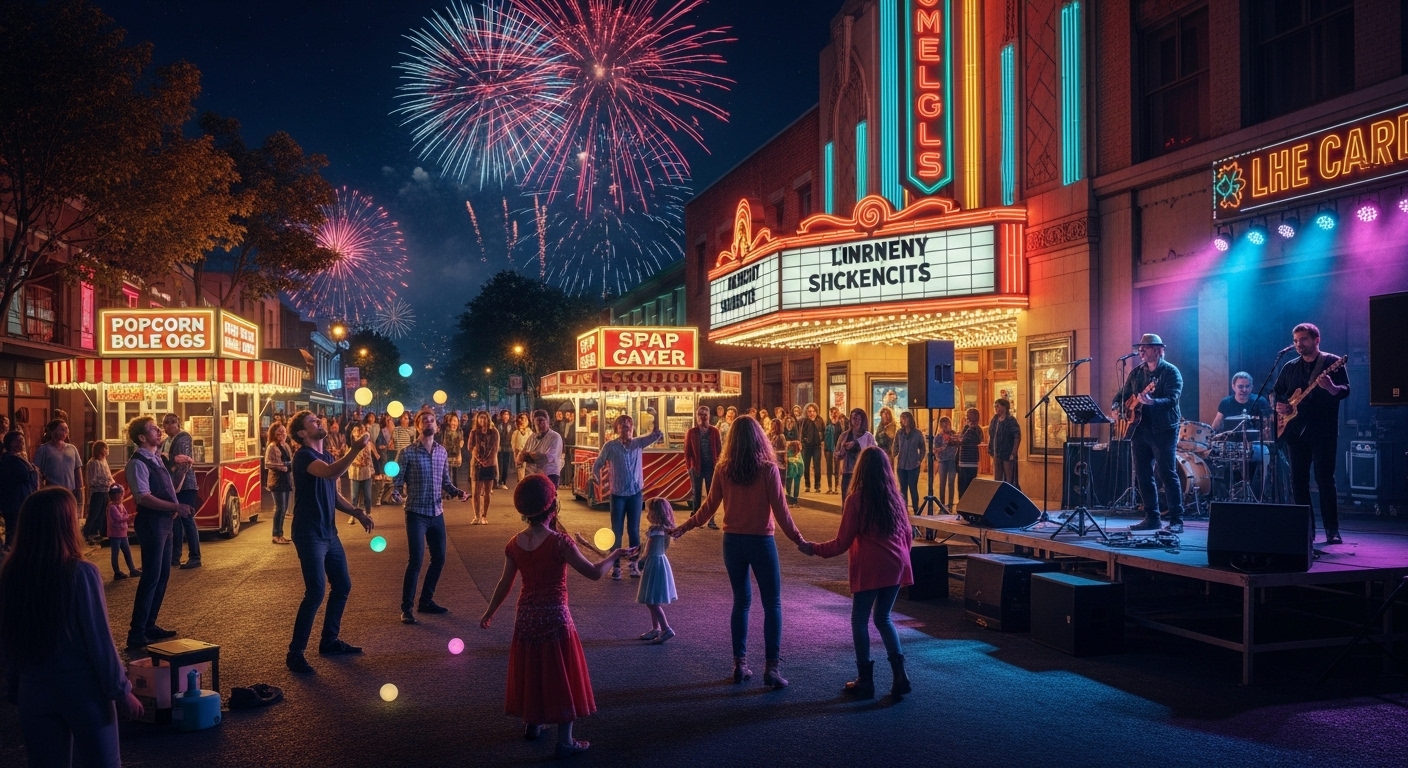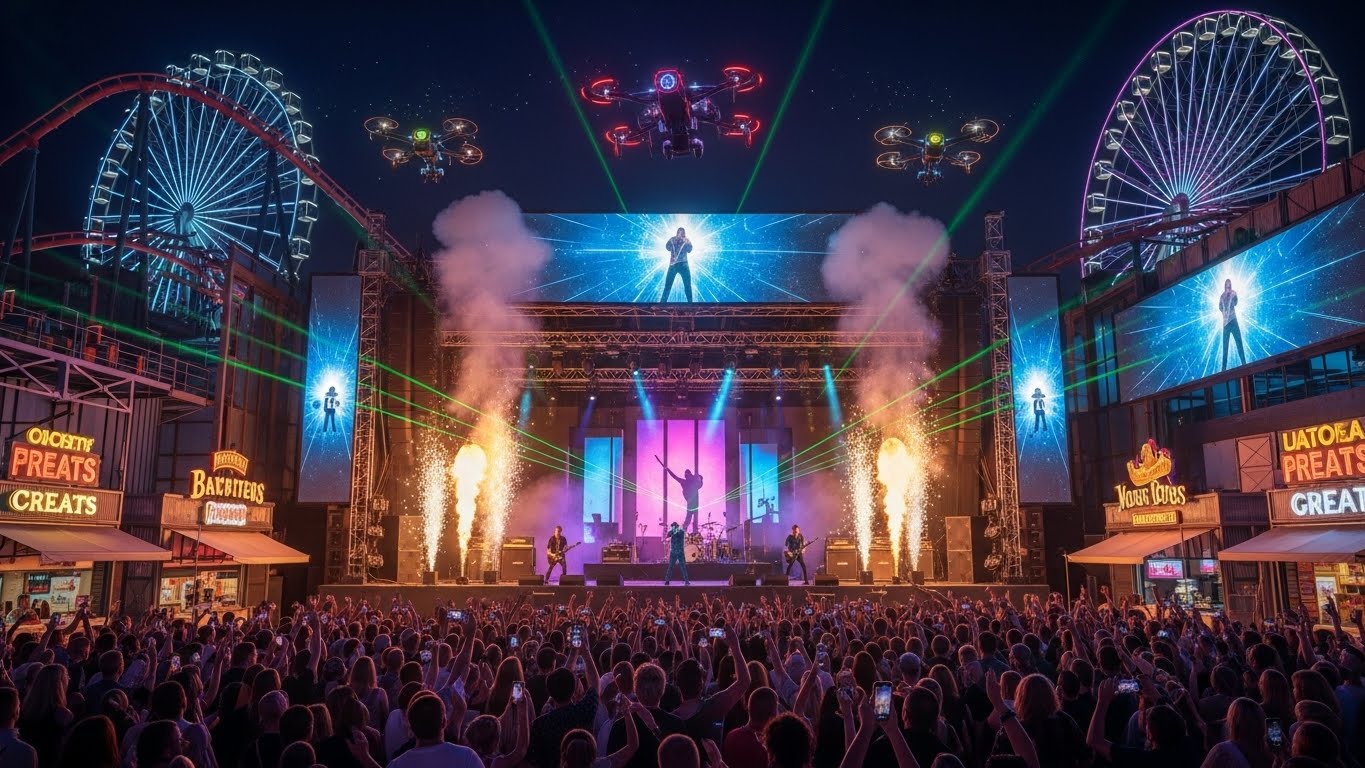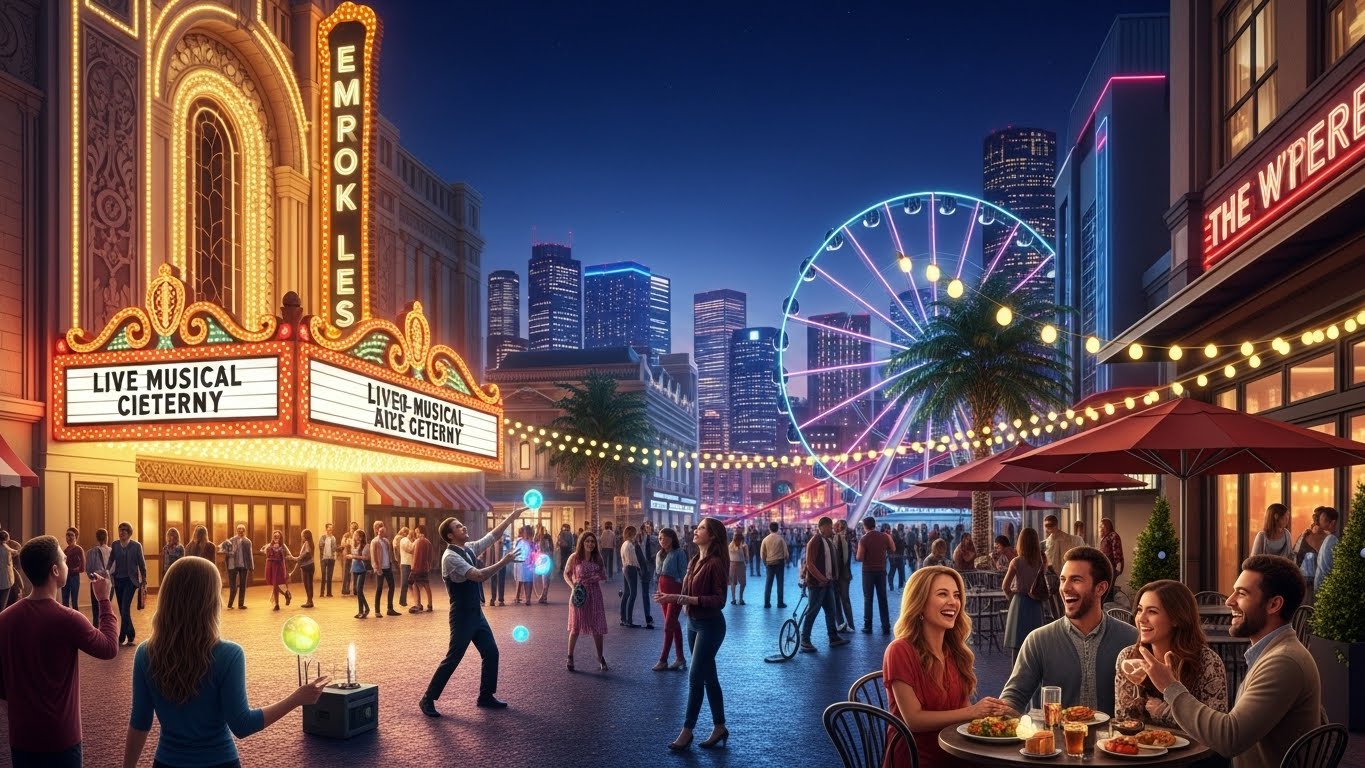Introduction: More Than Just a Distraction
Entertainment has always been a part of human life, but in today’s fast-paced world, it’s more important than ever. It’s not just about passing time or escaping reality—entertainment plays a crucial role in shaping our thoughts, emotions, and interactions. Whether it’s through music, film, sports, or digital platforms, entertainment connects us to each other and the world around us. But what makes entertainment so universally appealing? And why does it hold such an important place in our daily lives?
The Evolution of Entertainment: From Passive to Interactive
Entertainment has undergone a dramatic transformation over the last century. It wasn’t long ago when people gathered in theaters to watch films or sat around a radio to hear the latest news and stories. Today, entertainment is everywhere: on our phones, tablets, smart TVs, and laptops. It’s no longer just something to watch passively—it’s interactive, immersive, and accessible at the touch of a button.
The rise of streaming platforms, interactive gaming, and social media has shifted the role of the audience. We’re no longer mere consumers of entertainment; we’re participants in the experience. We can engage with content through likes, comments, and shares, creating a more dynamic and communal experience. Whether it’s watching a live concert on Instagram, playing multiplayer video games, or discussing the latest TV show with friends, entertainment has evolved into a two-way conversation that connects people across the globe.
Entertainment as a Mirror of Society
One of the most fascinating aspects of entertainment is its ability to reflect the society in which it exists. Whether it’s through film, television, music, or literature, entertainment often provides a window into the cultural, social, and political landscape. It captures the collective emotions, struggles, and hopes of a given time, offering insight into the issues that shape our world.
Movies like The Great Depression era’s “The Grapes of Wrath” or modern TV shows like Black Mirror don’t just entertain—they provoke thought and often challenge societal norms. Entertainment also serves as a platform for marginalized voices, allowing individuals and communities to express their experiences and perspectives in ways that might not otherwise be heard.
In this sense, entertainment is both a reflection and a catalyst for change. It helps us understand who we are, where we’ve been, and where we might be heading. The stories we choose to tell—and how we tell them—reveal a lot about the values and priorities of our society.
Entertainment as an Escape and a Release
In a world that often feels chaotic and stressful, entertainment provides a much-needed escape. It allows us to step out of our own lives for a while and immerse ourselves in stories, characters, and worlds that offer relief from the pressures of daily existence. The beauty of entertainment lies in its ability to transport us to places where we can laugh, cry, or simply lose ourselves in the experience.
Whether it’s watching a feel-good movie, listening to your favorite music, or reading a captivating book, entertainment provides a mental break, offering relaxation and emotional release. The sense of escapism it provides isn’t just about avoiding reality; it’s about finding a healthy outlet for emotions, processing difficult feelings, and recharging our minds. This emotional release is not only therapeutic but also essential for maintaining mental well-being.
The Social Aspect of Entertainment: Building Communities
Entertainment doesn’t just entertain—it builds communities. Social media, streaming services, and online gaming platforms have turned entertainment into a social activity, one that encourages shared experiences and connections. The rise of fandoms around certain shows, movies, and games has given people a sense of belonging, even in a digital world.
Whether it’s gathering with friends to watch a sports game or joining an online forum to discuss a TV show, entertainment fosters connections between people who share similar passions. These communities create a space for dialogue, collaboration, and mutual support. Entertainment thus becomes more than just an individual experience—it’s an opportunity to come together, build relationships, and be part of something larger than oneself.
The recent boom in virtual events—such as concerts, film screenings, and live-streamed conferences—further highlights the power of entertainment to bridge physical distances and unite people across the globe. No longer confined to a specific location, people can now engage in real-time entertainment experiences, making the world feel a little smaller and more connected.
The Economic Impact of Entertainment: A Global Industry
Entertainment is also a massive economic force. The global entertainment industry generates billions of dollars every year, spanning a variety of sectors such as film, television, music, theater, and video games. It’s not just about the celebrities and performers—we’re talking about an entire ecosystem of creators, producers, marketers, and tech developers who all contribute to the creation and distribution of content.
Movies, television shows, concerts, and sports events create jobs, stimulate economies, and support local businesses. Major entertainment events like the Super Bowl or the Cannes Film Festival contribute significantly to the economies of their host cities, generating revenue through tourism, sponsorships, and merchandise. Streaming platforms have changed the landscape of media consumption, creating new business models and opening doors for independent creators to reach global audiences.
Entertainment is also a driving force behind innovation. From special effects in films to the development of augmented and virtual reality in gaming, the demand for cutting-edge technology pushes industries to continually evolve. The entertainment sector, therefore, is not just a source of pleasure—it’s a key player in shaping technological progress and driving economic growth.
The Future of Entertainment: What Lies Ahead?
As technology continues to evolve, so too will the world of entertainment. The future holds exciting possibilities for immersive experiences, from virtual reality concerts to AI-powered films. With advances in artificial intelligence and machine learning, content could be tailored to each viewer’s preferences, creating a more personalized experience than ever before.
Esports, a rapidly growing sector, is blurring the lines between traditional entertainment and digital gaming, drawing millions of viewers worldwide and offering a new avenue for athletes, brands, and fans to connect. Streaming platforms will likely continue to dominate the way we consume content, but the rise of decentralized content creation and distribution could disrupt the current model, allowing for even more diverse voices and perspectives to be heard.
In addition, as the world becomes more interconnected, global entertainment will continue to evolve, embracing diverse cultures and traditions. International collaborations in music, film, and gaming are already taking place, and we can expect even more cross-cultural exchanges in the future, enriching the entertainment landscape.
Conclusion: Entertainment as a Lifeline
Entertainment is far more than just a distraction from daily life. It is a vital part of our cultural fabric, a reflection of who we are, and an essential tool for personal well-being. It connects us with each other, offers us a window into different worlds, and provides an escape when we need it most. Whether it’s a live concert, a blockbuster film, or a viral meme, entertainment continues to shape the way we live, communicate, and experience the world.
In an ever-changing world, entertainment remains a constant—a source of joy, community, and expression. It allows us to reflect on our past, engage with our present, and imagine new possibilities for the future. It is not merely a form of leisure, but a powerful force that influences our emotions, relationships, and societies. And as technology continues to reshape the way we create and consume it, entertainment will only grow in its importance, continuing to touch lives in ways we have yet to fully imagine.



